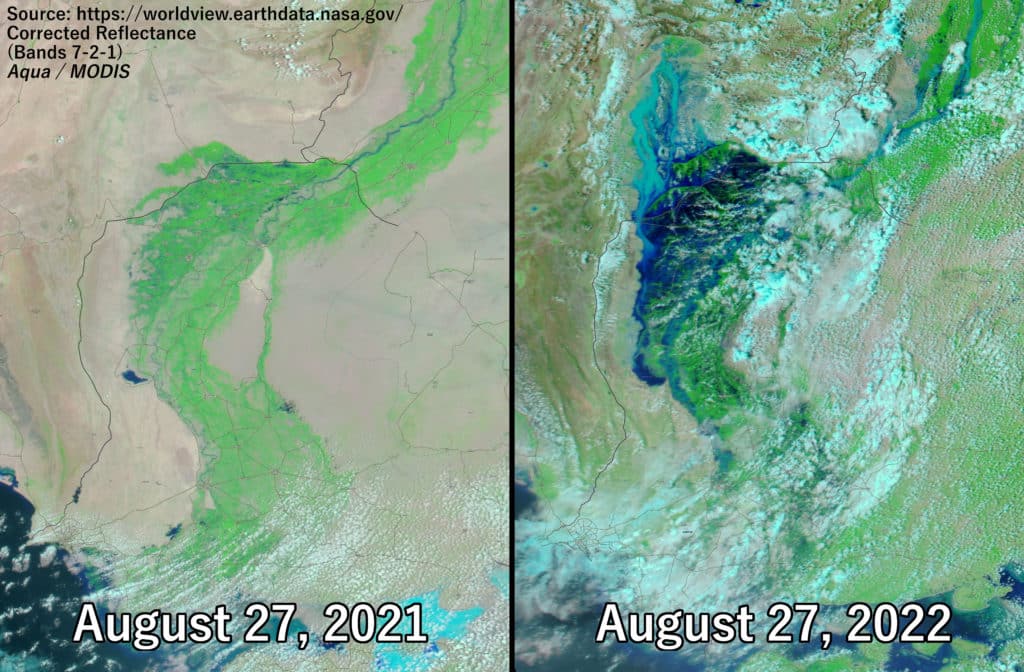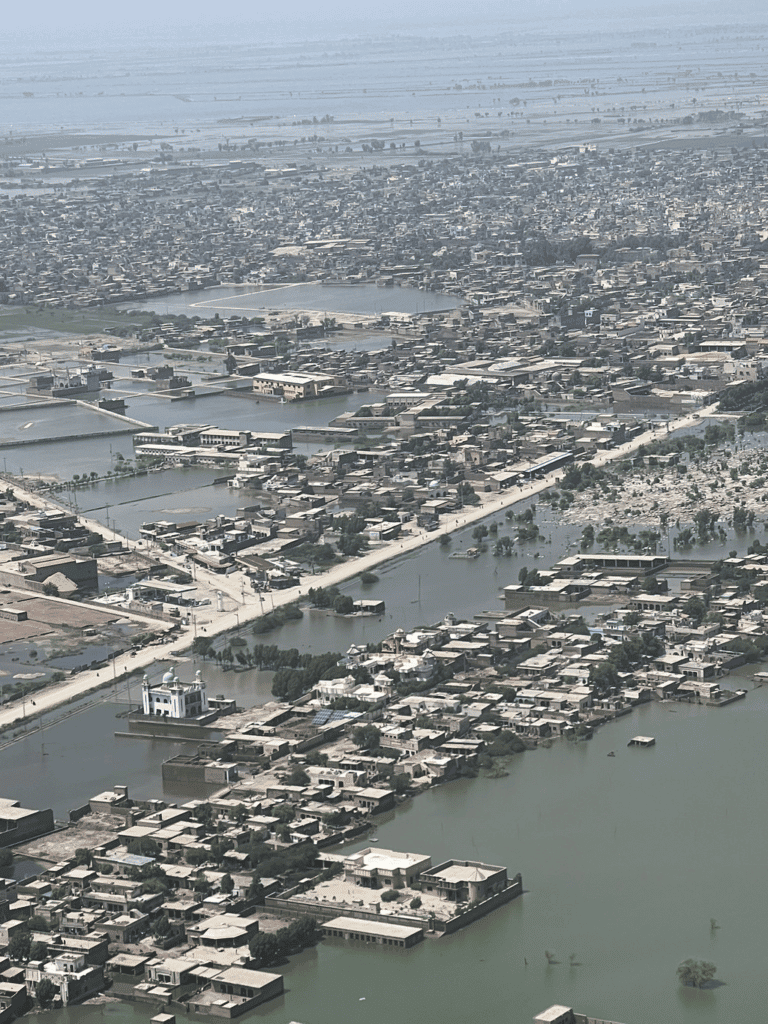
Flooding in Pakistan: The Inevitable Consequences of Climate Change
November 8, 2022By Areesha Fatima, Future Blue Youth Council member
Featured artwork: “Complete Destruction” by Mehtab Abid, Pakistan
Monsoons batter South Asian countries every year from April to September. This year broke records, as ‘Pakistan received nearly 190% more rain than its 30-year average.’ On June 14, 2022, Pakistan was hit by one of the worst flooding events in history, killing nearly 2,000 people, wiping away acres of farmland, and leaving more than one-third of the country underwater. 1.6 million among the displaced were women, with nearly 130,000 pregnant in need of urgent health services.

Extreme weather, like increased rainfall, is a climate catastrophe caused by human actions. The sad reality is that these consequences impacting the Global South are the result of the actions of many first-world countries. Pakistan contributes to less than 1% of global carbon emissions, yet it is at the receiving end of this terrible humanitarian crisis. Pakistan has an agriculture-based economy, yet today it stands with acres of barren land with millions of crops and livestock washed off by the floods.
António Guterres, Secretary-General of the United Nations, visited the affected areas of Pakistan in September, and remarked, “I have seen many humanitarian disasters in the world, but I have never seen climate carnage on this scale. I have simply no words to describe what I have seen today: a flooded area that is three times the total area of my own country, Portugal.”

Ali Hyder Junejo, CC BY 2.0, via Wikimedia Commons
It has been months since floods hit Pakistan, but the damage has not been undone. Flood water still stands in some areas, bringing water-borne diseases and a greater risk of death. Questions still remain: Who should be held accountable for this? When will countries start taking responsible steps to curb climate change?
Seeing the climate disasters and the plight of the people, many people did step forward to help. The government set up flood relief camps all across the country and accepted donations of any kind. Different non-profits evacuated people from flood-affected areas. One of these non-profits, the Alkhidmat Foundation, set up medical camps all across the country and carried out some of the largest relief activities. Most recently, Alkhidmat volunteers, amidst their flood relief services in the Sindh province, organized special events and distributed gifts to over 500 flood-stricken Hindu families for Diwali.
This is a very loud reminder that climate change is a reality. It will not take 20-30 years for its effects to become evident – it is happening right now. Those in power must realize the impact of their actions. It is either today we realize that climate policies need to be implemented because later opportunities may never come. The Global North needs to realize what they are doing; no amount of funds given or aid can undo the damage of life. Global emissions must be cut to curb future damages. Pakistan and the Global South are not responsible for the lion-share of the emissions, but still they are ones facing the most severe impacts of it. Today, Pakistan is at the receiving end; tomorrow, it will be another country.
